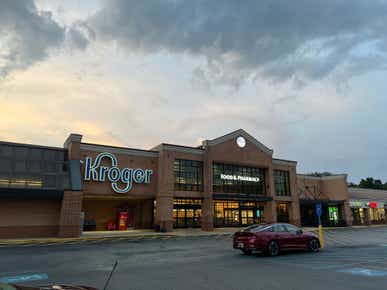States and Feds Oppose Kroger-Albertsons Merger

States and Feds Oppose Kroger-Albertsons Merger
By:James Melton
The FTC says the deal would be anticompetitive, raise grocery prices and depress wages
- The feds and nine states want to kill the Kroger/Albertsons merger.
- The FTC says the deal would raise prices and lower wages.
- Kroger says it'll see the FTC in court.
The biggest grocery store merger in U.S. history won’t happen if the Federal Trade Commission and nine states get their way in court.
The FTC and state attorneys general jointly sued on Monday to block the proposed $24.6 billion merger of Kroger (KR) and Albertsons (ACI), alleging the deal is anticompetitive.
The FTC says in a statement “that the proposed deal will eliminate fierce competition between Kroger and Albertsons, leading to higher prices for groceries and other essential household items for millions of Americans.” In addition, the FTC says the deal would hinder competition for workers,
Kroger operates thousands of stores across 36 states, while Albertsons operates thousands of stores across 35 states. If the merger were completed, Kroger and Albertsons would operate more than 5,000 stores across 48 states and employ nearly 700,000 people.
Divestiture plan called inadequate
To win FTC approval, Kroger and Albertsons agreed to divest several hundred stores and other assets. But the FTC says the divestiture plan is inadequate, calling it “is a hodgepodge of unconnected stores, banners, brands, and other assets that Kroger’s antitrust lawyers have cobbled together and falls far short of mitigating the lost competition between Kroger and Albertsons.”
The deal would raise prices and threaten "the ability of employees to secure higher wages, better benefits and improved working conditions," the FTC says. That's because, where the chains overlap, they would no longer poach each other’s employees,
Kroger begs to differ
Kroger says the FTC is wrong when it charges the merger would lead to higher prices for consumers and hurt employees.
“Customers will benefit from lower prices and more choices following the merger close,” Kroger said in a statement. “The company committed to investing $500 million to begin lowering prices day one post-close, and an additional $1.3 billion to improve Albertsons Cos.' stores.”
Kroger also says it is "committed to investing $1 billion to raise wages and comprehensive benefits. This builds on the incremental $1.9 billion Kroger invested to improve wages and comprehensive benefits since 2018."
Neil Saunders, managing director of the retail consultancy GlobalData, told NBC News the merger would be unlikely to stifle grocery price competition because many grocery sellers, such as Costco (COST) and Aldi compete based on price and will continue to do so.
A Kroger-Albertsons merger would create a supermarket behemoth. But it would still be No. 2 in the U.S., trailing Walmart (WMT), which controls more than a quarter of the massive U.S. grocery market.
"The merging parties look forward to litigating this action in court so we can deliver the benefits of this merger to communities across America" Kroger's statement says.
James Melton is managing editor of Luckbox magazine. @JDMeltonWriter
For live daily programming, market news and commentary, visit tastylive or the YouTube channels tastylive (for options traders), and tastyliveTrending for stocks, futures, forex & macro.
Trade with a better broker, open a tastytrade account today. tastylive, Inc. and tastytrade, Inc. are separate but affiliated companies.
Options involve risk and are not suitable for all investors. Please read Characteristics and Risks of Standardized Options before deciding to invest in options.